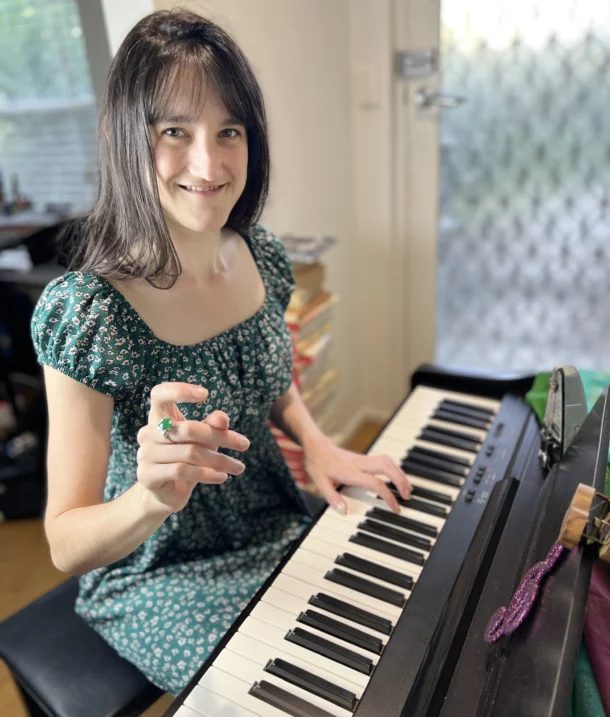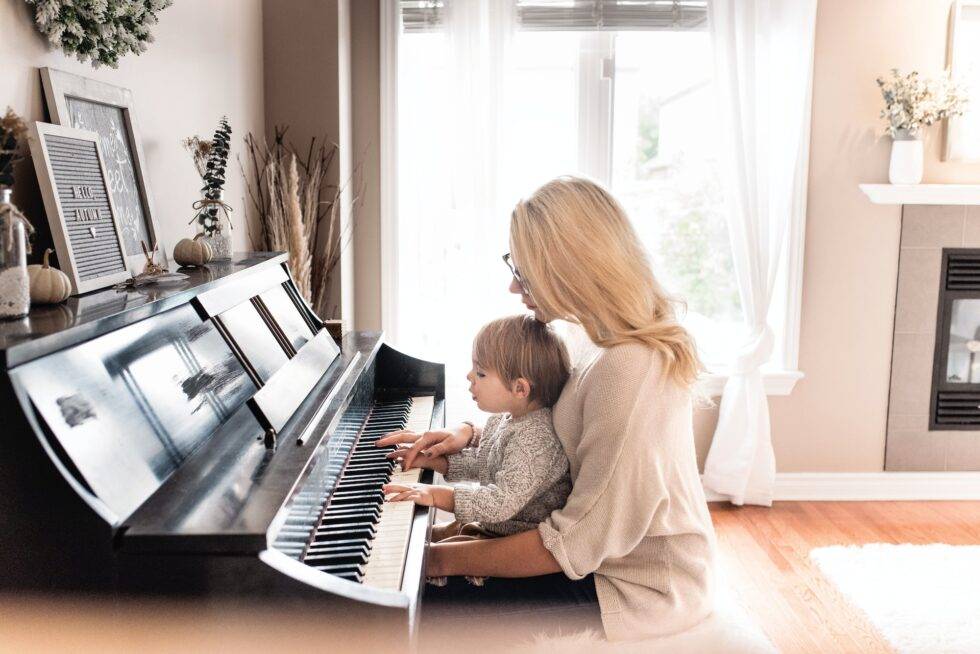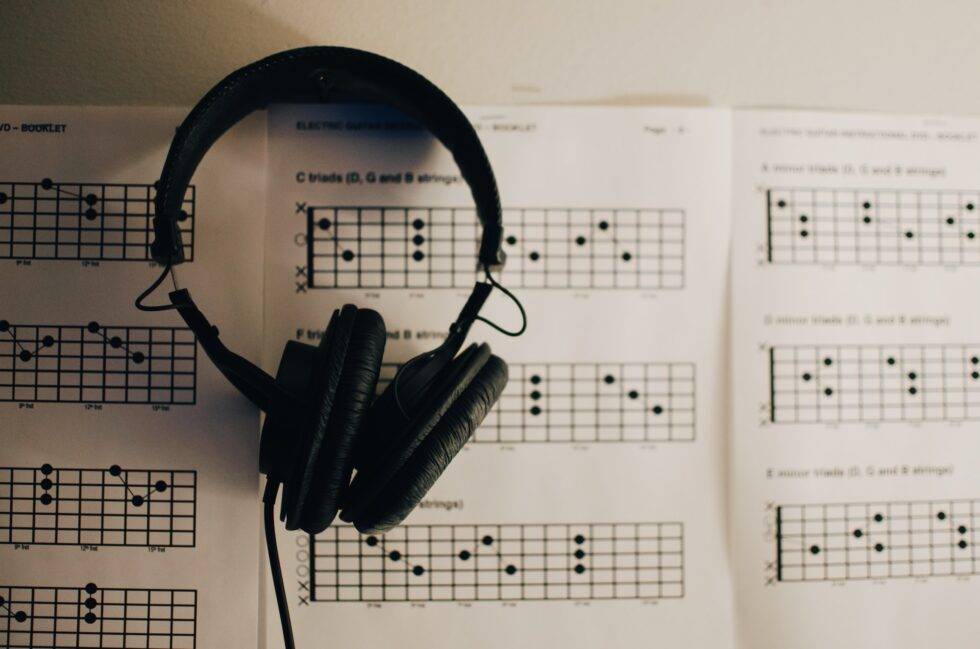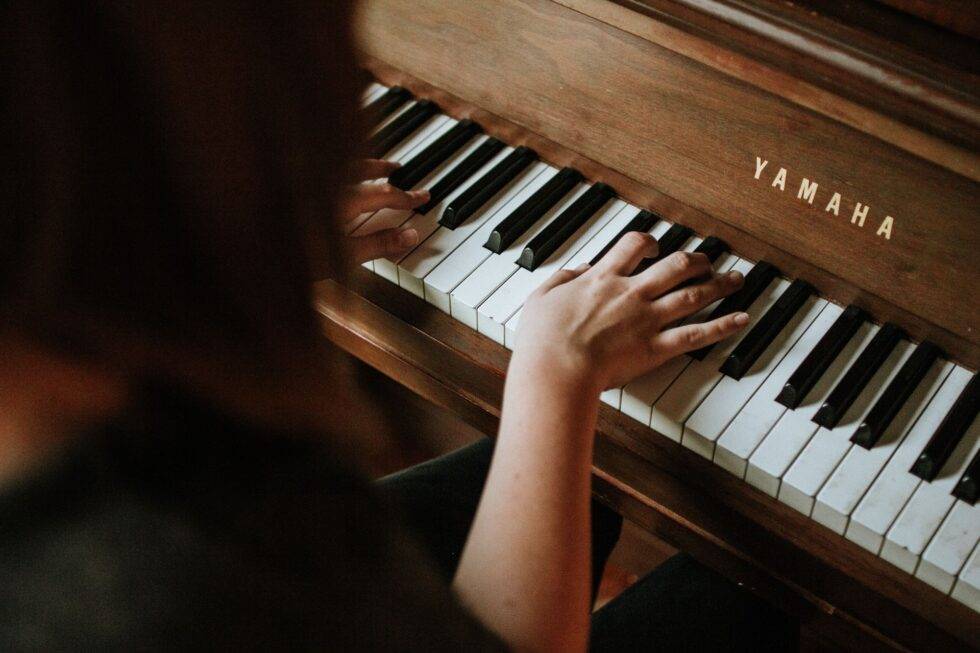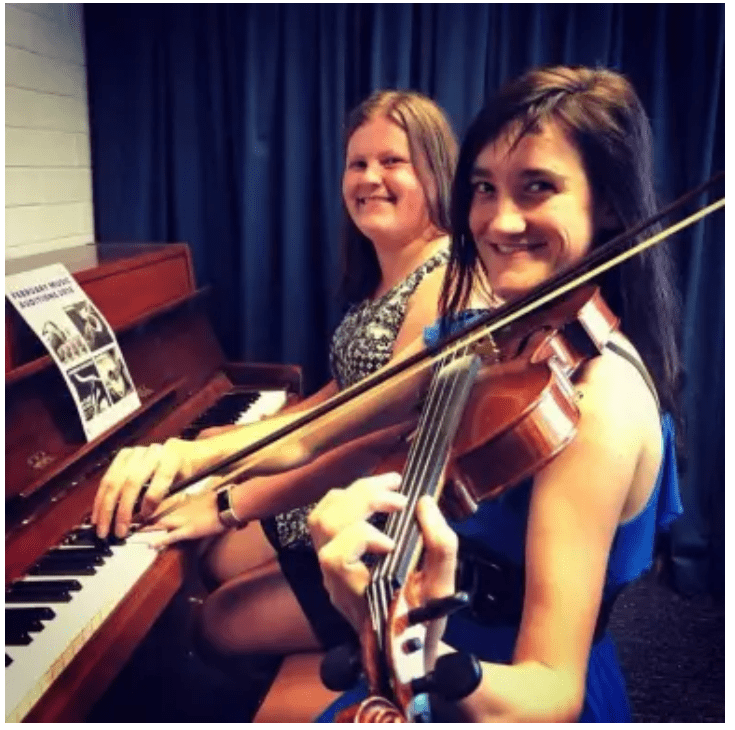
Third year music students, Nicola Kubenk (Clarinettist/Composer) and Elizabeth Brady (Violinist/Music Teacher) reflect on their experiences of receiving a position in this year’s Adelaide Symphony Orchestra’s Pathways program.
Tips from Dean Newcomb, principal clarinetist in the ASO.
As a vioIinist honestly wasn’t sure how useful a Q & A session with a clarinetist would be. I was so pleased to find myself in a session that approached the topic of how and when to practice, learn and master technique and how to prioritise repertoire learning as a professional performer.
We all had so many questions.
How do you find the time to practice productively? What is productive practice? Should you video or audio record yourself? Is that for every practice? Should you always memorise your music before a performance and how do you do that?
Dean Newcomb is a very in demand clarinetist, particularly as a soloist and was in fact flying out the next evening to tour with the Australian String Quartet, after soloing with the ASO in a classics series and had broken a finger the week before. Still he continued to practice and had learnt all his repertoire by memory. So how does he do it? These are some of the take-a-ways for me from the session.
How do you find the time to practice productively?
Set your practice times in your schedule and don’t allow anything at all to change that. Being sick as a dog or family issues or anything that might occur will never be as important as your practice. No practice = no progress =no paid work as a musician. Planning out your weekly schedule with realistic goals of practice times is important.
“have realistic and achievable goals”
What is productive practice?
Productive practice describes a session where you spend every moment of your session finding the techniques and rhythms where you are weakest and developing them to the same level as your points of musical strength. It is not about performing repertoire from beginning to end, it is about the techniques, rhythms, musical elements and tricky sections within the repertoire.
Do you need to play your pieces from start to finish, over and over?
Absolutely not. Each practice session does not need to include playing every single note of all your repertoire. If you have a 30 minute practice scheduled, and your song goes for 27 mins (like a concerto), then playing from beginning to end is not an effective way to use the time. Playing a song all the way through is for the week before the performance. By this time you have analysed the whole piece, broken it down into the rhythmic and melodic elements and practiced every technique involved in ensuring you and your instrument perform with musical mastery.
Once technique is mastered, this applies to not only your current repertoire but repertoire you will use later in life.
AdvertisementsREPORT THIS AD
How does recording your playing help?
Yes recording yourself is always helpful. Make sure to listen back to the recording and be very critical of your musicianship. Remember that in a performance, all sorts of things can go wrong or end up being performed in a very different way to rehearsing in a controlled environment. Practicing is the way you drill yourself in your mastery of your instrument and constantly develop your ability to play better and better. There is no limit to a musicians progress. If you’re not better than you were yesterday…..practice more! Be kind to yourself and remember some days are better than others, but have faith and stick to your schedule.
Often as musicians what we think we hear is not actually what the audience hears. Have you ever heard a recording of you speaking and thought “oh do I really sound like that?” This is similar for musicians so it is really important to record, listen, critique and be a teacher to yourself.
How do you learn lots of repertoire by memory?
Listen to as many good quality recordings of the piece/s as possible with the score in front of you. If possible, watch live videos of other musicians playing so you can analyse their musicianship and techniques and incorporate the great practices into your own performances. Interpret the piece as your own while adhering to the context and meaning of the piece/s and ensure that you are always rhythmically, melodically and overall musically in sync with the ensemble or orchestra.
Memorise the form and structure of the piece and make sure that you master every section which contains techniques you may be weakest in.
“Prioritise your learning”
Prioritise your learning based on your familiarity with the repertoire, the difficulty of the repertoire for you, how many group rehearsals will be available and in the order of the performance of the repertoire.
For instance, Dean was performing a Wagner solo the next day, then flying out to tour with the Australian String Quartet. He had memorised the Wagner weeks before and already begun the listening, analysing and practice of the required techniques for the Quartet’s repertoire. Once he returned to Adelaide he was joining the ASO’s performance of a Harry Potter soundtrack . He would begin listening and memorising the piece while flying to the different venues on tour, but had played the score several times before and was already familiar with the form so didn’t require much practice of the repertoire, just scales, exercises and technique, as always.
This opportunity to spend time in a masterclass with Dean Newcomb was a great experience. Even though most of the people in the pathway program are not clarinet players, we all learnt something from him that will help us to become the best musicians that we can be. Alongside Dean being a fantastic clarinetist, he is also a wonderful teacher/mentor for younger musicians wanting to learn.
We are grateful for the ASO mentorships as it has broadened our knowledge, experience, musicality, and further understanding to practicing music.
The Adelaide Symphony Orchestra’s next upcoming concert is the 1st and 2nd of November “Firebird Master series 9”. Details at www.aso.com.au
